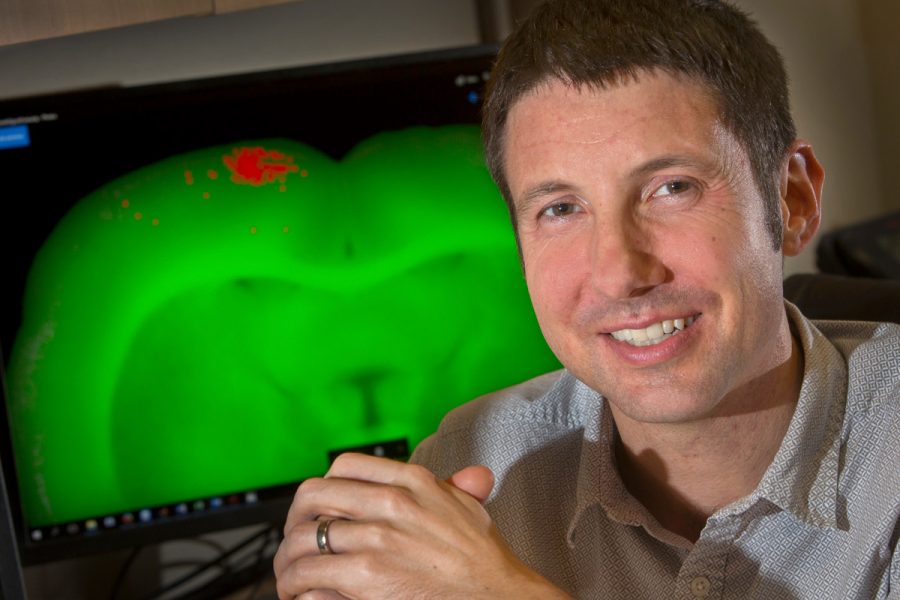
A Florida State University researcher has been awarded a $2.2 million grant from the National Institutes of Health to study sleep-related brain function in Alzheimer’s disease, a progressive disorder that affects memory and behavior in millions of Americans.
Assistant Professor of Psychology and Neuroscience Aaron Wilber will receive the grant, awarded through the NIH’s National Institute on Aging, over the course of the next five years.
“One reason Alzheimer’s treatments have failed may be because it’s difficult to catch the disease before the brain has become too dysfunctional to recover,” Wilber said. “This grant is focused on identifying early changes in the brain, and we hope that looking earlier in the disease progression will yield new insight into approaches for detecting and treating Alzheimer’s disease. We are also looking at later timepoints since more is known about later brain changes in Alzheimer’s disease.”
Wilber’s team — including research scientist Shawn Moseley and graduate students Sarah Danielle Benthem and Alina Stimmell, and co-senior investigator Benjamin Clark from the University of New Mexico — will assess the relationship between spatial learning and memory and the brain’s dynamics during sleep. Using mouse models, they will examine these dynamics within and across the hippocampus and parietal cortex, brain regions involved in spatial navigation learning and memory.
Getting lost, particularly in new surroundings, is typically among the early symptoms of Alzheimer’s, which suggests the disease is affecting the brain’s navigation systems and its memory systems at this stage.
“This project will provide insight into the normal function of a circuit that is dysfunctional in Alzheimer’s disease and allow us to probe dysfunction in this circuit that emerges in early stages of disease progression in mice modeling aspects of Alzheimer’s disease seen in humans,” Wilber said. “This research will allow us to begin understanding changes in this network which may underlie the emergence of cognitive impairments observed in Alzheimer’s disease and begin testing the efficacy of a non-invasive treatment for reversing functional brain abnormalities and impaired cognition.”
Hippocampal-cortical interactions during sleep are thought to be critical for consolidation of newly acquired memories. Previous work in the Wilber laboratory has found deficits in the communication necessary for memory formation in the hippocampus and parietal cortex during sleep in mouse models of Alzheimer’s disease. This work was published last summer in the Journal Current Biology and offers insight into why memory is impaired in Alzheimer’s patients.
“The prevailing theory is sleep is critical for memory, and that the brain builds connections better while we are sleeping,” Wilber said. “When you sleep, your brain plays back memories at high speed, usually six to seven times faster than they occurred in real life. If you’ve fallen asleep dreaming and it feels like a significant amount of time has passed when you wake up, this high-speed playback during sleep may explain why. That high-speed playback is thought to optimize your brain cells for building better connections.”
Researchers are now attempting to rescue these deficits using a novel stimulation method that has been shown to clear amyloid beta and tau, which accumulate in Alzheimer’s disease.
“This is an intriguing potential treatment for Alzheimer’s disease that could be translated into human patients, and I’m excited to further our understanding of the mechanisms underlying Alzheimer’s disease and studying new treatments for this devastating illness,” Benthem said.
According to the National Institute on Aging, Alzheimer’s disease currently ranks as the sixth-leading cause of death in the U.S., and the Alzheimer’s Association counts more than 6 million Americans currently living with the disease. Forty-seven million people worldwide are living with the disease, a number projected to soar to 76 million over the next decade.




